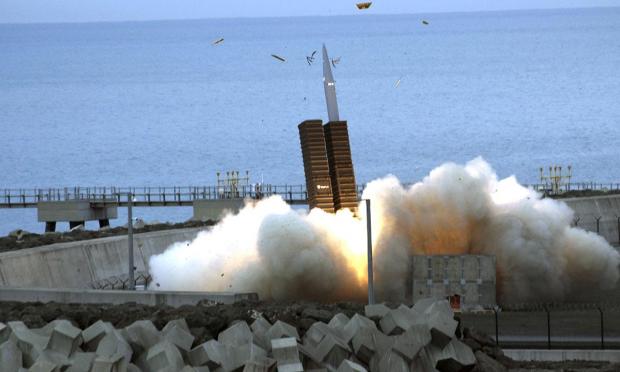Erdogan's ambitions to recreate the Ottoman Empire have long been known, as nearly all of his foreign policy moves are based on serving the ideology of the "Blue Homeland" and the "Secret Oath," which form the cornerstone for this goal.
A stepping stone to achieving Erdogan's objectives is the rapid development of Turkey's defense industry, with the hypersonic missile Tayfun serving as the "long arm" of Turkey.
At the beginning of the new year, on January 6, President Erdogan made clear his intention to proceed with the production of the long-range hypersonic missile Tayfun.
On February 3, the Turkish military blocked approximately 430 miles from the busy coast of the Black Sea so that the Turkish defense company Roketsan could test the Tayfun.
This was the third such test. According to reports from the region, the Turkish military launched the Tayfun from a mobile launcher in the Rize-Artvin area along the Black Sea coast.
The missile then traveled toward its target, off the port of Sinop, successfully destroying it.
The Tayfun missile and its impact on regional security
The Tayfun missile, with a range of 350 miles, provides the Turkish military with a new capability that surpasses many of its regional competitors, as in reality, the only other powers in the Middle East with hypersonic weapons capability are the Russian Federation and possibly the Islamic Republic of Iran.
This fact could have concerning implications for regional security.
Recently, Turkey has made significant noise regarding Palestinian Territories, aiming to halt a supposed Israeli genocide against Palestinian Arabs. The Israeli Nagel Commission, formed by Prime Minister Benjamin Netanyahu to assess future threats to the Jewish state, estimated that there is a possibility of Israel and Turkey being at war, primarily due to Turkey's claims of protecting Palestinian Arabs.
Moreover, Turkey's political elites under Erdogan are Islamist, and thus highly anti-Semitic and generally opposed to the continued existence of Israel.
Interestingly, this missile system is the result of years of development, not only with Western partners but also with China.
According to a source, Turkishminute.com, the Tayfun program began in the 1990s, "initially through defense cooperation with China amid limited technology transfers from Western allies."
Specifically, the article mentions that the current hypersonic missile Tayfun derives from the Yildirim (Lightning) missile, built with Chinese assistance.
As Turkey’s defense industry base becomes increasingly self-sufficient, it has proven capable of producing advanced systems at scale, making the production of Turkish hypersonic weapons a realistic goal.
Hypersonic weapons are an essential platform for any modern military, especially for an emerging power like Turkey. The fact that the Americans lack sufficient domestic capabilities or reliable defense against such systems poses a significant problem.
Turkey's impressive defense industry
Turkey’s defense industry has already demonstrated impressive capabilities, manufacturing surface combat ships at breakneck speeds.
Turkey is a world leader in advanced drone capabilities and is running an impressive indigenous fifth-generation fighter program.
These capabilities, linked to Turkey's neo-Ottoman worldview, indicate that Ankara intends to assert its will – even at the expense of its relationship with the United States and NATO – in regions like the Middle East and the Southeast Mediterranean, which it considers critical.
What is clearly taking shape is a quadripartite struggle for control of the Middle East between Israel, Iran, Sunni Arab states led by Saudi Arabia, and Turkey.
In conclusion, these developments show that Ankara should not be underestimated, and it will no longer be a marginal player in the Middle East, Southeast Mediterranean, and the Aegean.



